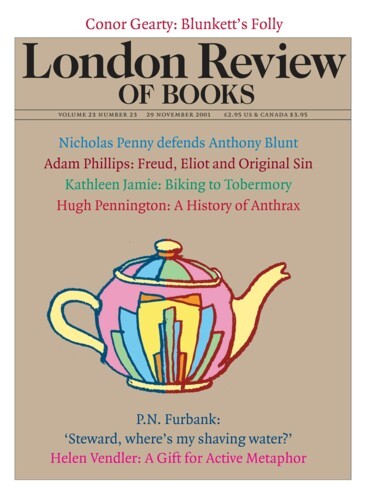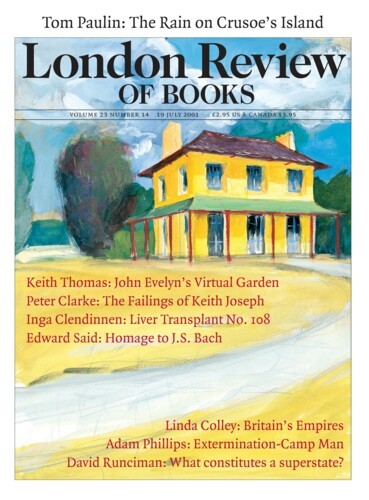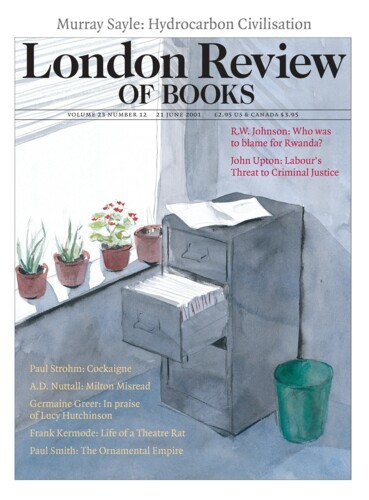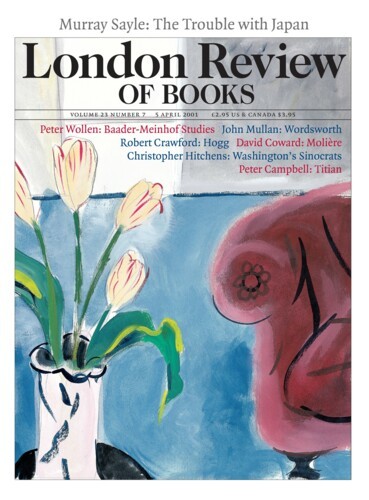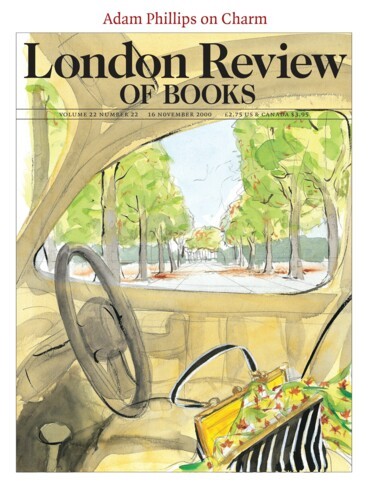Three poems
Robert Crawford, 29 November 2001
King of England from 1461, born Atlanta, Georgia, always Zealous Orleanist, became Cricketer, administrator, son Of trade unionist, Irish mother leader Of Gaelic revival, debuting Covent Garden, Wurttemberg, Sardinia; fought Crimean War, Fifth of seven, acquiring nickname ‘Hetman of the Cossacks of the Don’. After carrying army across Bosporus on bridge of...
